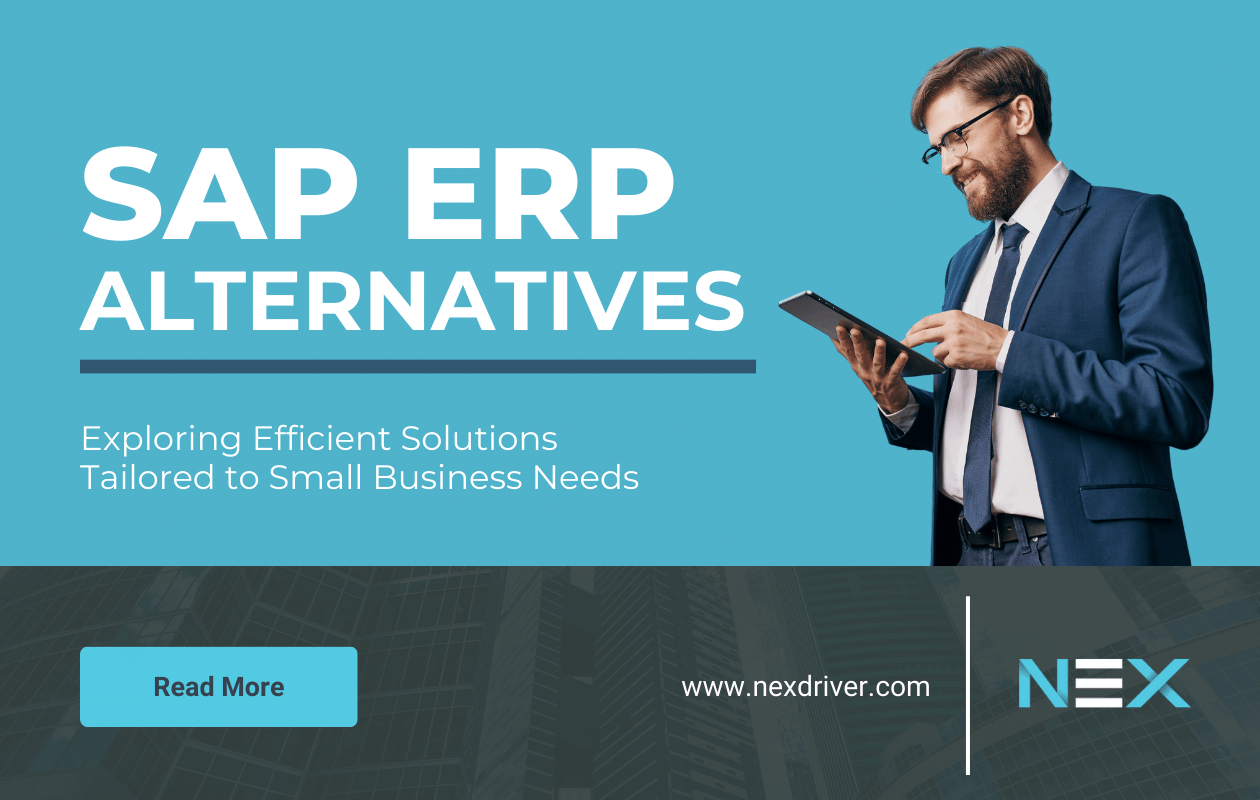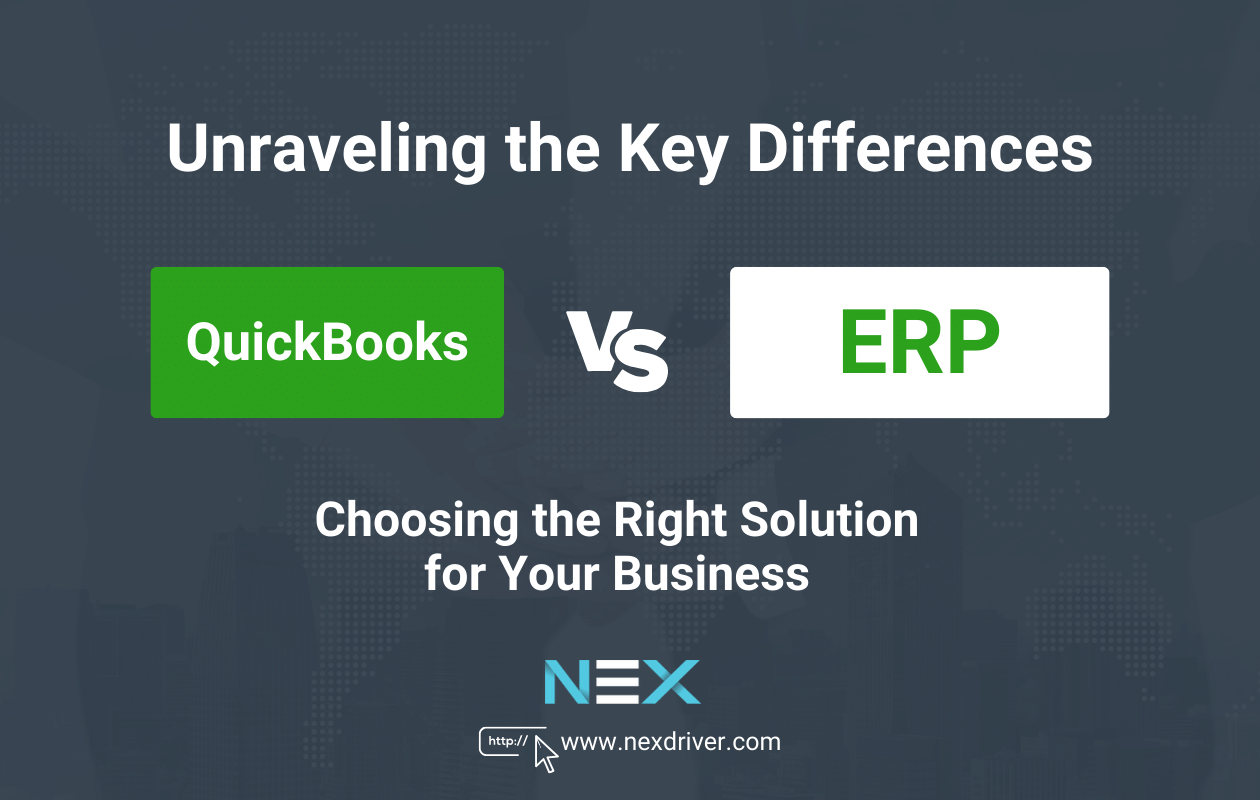Top SAP ERP Alternatives for Small Businesses
Ever feel like your business is drowning in spreadsheets and struggling to stay organized? You're not alone. Many small businesses face the same...
7 min read
Sophie Atalla : Jul 25, 2025 11:40:37 AM
Tired of juggling messy spreadsheets or paying too much for bloated ERP software?
You're not alone. Gartner predicts that over 70% of ERP initiatives will fail to meet their original goals by 2027. That’s because most ERP systems were built for global enterprises, not lean teams trying to juggle inventory, track orders, and stay profitable.
You don’t have time for six-month rollouts, surprise fees, or features you’ll never touch.
This guide cuts through the noise. We’re showing you the top ERP alternatives for small businesses in 2025—tools that are fast, affordable, and built to match how small teams work. If you’re ready to ditch the bloat and find a system that moves with your business, read on.
Most ERP systems weren’t designed for small businesses. They assume deep budgets, large teams, and long timelines. That’s exactly what makes them a terrible fit for growing companies trying to move fast and stay lean. Here’s where they fall apart:
ERP software like SAP Business One or Microsoft Dynamics 365 Business Central offers robust features along with a hefty price tag. Licensing fees, onboarding costs, and support packages quickly blow past what most small businesses can afford. These platforms were built for large enterprises with dedicated IT teams, not lean operations managing payroll and inventory on the fly. You shouldn't have to pay enterprise rates to get the essentials.
Traditional ERP implementation takes months. You’ll need consultants, IT support, and endless back-and-forth to get up and running. Small businesses need a cloud ERP system that’s live in weeks, not quarters. If your ERP vendor can’t deliver fast deployment with minimal overhead, you’re wasting resources before the system even goes live.
Most small businesses don’t need a full ERP system. But that’s what traditional vendors keep selling—every feature, every module, whether you use them or not. If all you need is order processing, accounting, inventory tracking, and basic project oversight, why pay for manufacturing ERP, compliance tools, or enterprise integrations?
The wrong ERP system doesn’t just waste money. It drains time, kills momentum, and leaves your team buried in manual work. That’s why many small businesses in 2025 are turning to lean, cloud-based ERP solutions that match their actual needs, not enterprise bloat. If you’re comparing ERP options, here’s how to filter out the fluff and find the best fit for your business operations.
Forget the shiny dashboards and AI sales talk. If you run a small or mid-sized business, these are the must-haves your ERP platform needs to deliver:
1. Transparent, Predictable Pricing
Small businesses can’t gamble with vague quotes and surprise fees. The best ERP software for small teams should offer flat rates, usage-based pricing, or clear packages. Nothing hidden behind demo calls. If the vendor won’t give you a number, walk away.
2. Go-Live in 30 Days or Less
You shouldn’t need a six-month ERP implementation just to get inventory reports or track expenses. Cloud-based ERP tools can go live in weeks with minimal setup. If your system still requires consultants and custom dev work, it’s the wrong fit for a small to medium-sized business.
3. Core Tools That Solve Real Business Problems
Look for an ERP solution that covers the fundamentals without piling on modules you’ll never touch. This is what helps businesses manage day-to-day operations without drowning in complexity:
4. Grows With You—Without Lock-In
A flexible ERP should scale with your team size, transaction volume, and business complexity. The best ERP solutions for small businesses offer integrations, upgrades, and add-ons that don’t require a full system overhaul.
Whether you need ERP integration with e-commerce, payroll, or CRM, your platform should adapt as your business grows—not hold you back.
5. Easy Access from Anywhere
You run your business from your laptop, your phone, and sometimes your car. Your ERP cloud system should support that. Choose tools with clean UIs, mobile apps, and intuitive dashboards. You shouldn’t need a manual to create an invoice or check on stock levels.
One platform that checks all these boxes—speed, simplicity, and scalability—is NEX Driver’s cloud-based ERP solution, purpose-built for small and medium-sized teams.
Forget the enterprise platforms that take six months to launch. These ERP solutions are faster, leaner, and realistic for growing small businesses. Each one supports real business management workflows without dragging you through bloated features or complex integrations.
Zoho One is ideal for service-based businesses that want everything in one place, including CRM, finance, HR, project tracking, and business intelligence. It’s one of the most accessible ERP systems for small businesses: quick to set up, easy to scale, and priced to fit smaller teams.
What makes Zoho stand out is how unified the experience feels. It’s not a patchwork of disconnected apps. If your business relies on multiple functions such as sales, accounting, and time tracking, Zoho’s cloud ERP system handles them without chaos. Just don’t expect deep manufacturing or warehouse tools.
Katana is purpose-built for small manufacturing businesses and product-based brands. It focuses on visual production planning, real-time inventory control, and order management—giving small teams the kind of clarity typically reserved for large-scale ERP systems.
It’s especially strong for businesses that sell physical products and need to sync inventory with platforms like Shopify, WooCommerce, or QuickBooks. If your operation involves materials, stock levels, or a production schedule, Katana is likely a better fit than more generic ERP solutions.
NEX Driver bridges the gap between lightweight tools like QuickBooks and heavyweight ERPs like SAP Business One. It’s a cloud-based ERP platform designed specifically for small to mid-sized businesses with configurable modules that match real workflows like order management, inventory, CRM, and customer service.
Deployment is fast (often under three weeks), pricing is transparent, and the platform scales as your business grows. Unlike enterprise ERP vendors, NEX doesn’t assume you have IT staff. It’s built for owners and operators who want software that adapts to their business, not the other way around.
QuickBooks Online Advanced isn’t technically a full ERP solution—but it’s close enough for many small businesses, especially those focused on financial clarity. It supports accounting, billing, roles and permissions, and basic dashboards, with a setup that’s familiar and easy to manage.
It’s a smart upgrade for businesses that have outgrown basic accounting software but aren’t ready for complex integrations or new ERP systems. If you don’t need inventory control or manufacturing features, QuickBooks Advanced offers just enough functionality to help businesses manage money, teams, and reporting without added friction.
Odoo is a powerful open-source ERP option for businesses that want total control over their stack. You can start small with just invoicing or CRM and expand into inventory, finance, or project management as your business needs evolve.
It’s incredibly flexible, but setup can be technical. You’ll likely need a partner or developer to configure it properly. That said, it’s one of the few ERP systems for small businesses that offers this level of customization without forcing you into predefined pricing tiers or rigid operational structures. If your team has tech skills or very specific business processes, Odoo gives you the tools to build what you need, and nothing you don’t.
Acumatica is a full-featured ERP platform with serious capabilities like financials, distribution, project accounting, and more, but with a pricing model designed to scale cost-effectively for growing businesses. Instead of charging per user, Acumatica charges based on system usage, which makes it far more scalable for teams with multiple roles.
While implementation can take longer (up to 90 days), it’s one of the most robust ERP platforms available to small and mid-sized businesses that need to connect operations across departments. Acumatica is best suited for businesses requiring more than basic tools and ready to grow into a long-term platform.
Not sure which ERP system is the right fit? This table breaks down how the top options stack up based on price, speed, and what kind of businesses they actually support. Whether you're a service firm, a manufacturer, or a finance-focused team, use this side-by-side to quickly spot what makes sense for your business:
| ERP Tool | Best For | Starting Price | Deployment Time | Key Strength |
|---|---|---|---|---|
| Zoho One | Service-focused SMBs | $30–$90/user/month | Days to <30 days | Unified ERP cloud system for multiple functions |
| Katana | Small manufacturers & D2C brands | $179–199/month | 2–6 weeks | Visual workflows, real-time inventory |
| NEX Driver | Operational SMBs growing beyond QuickBooks | Custom (transparent quotes) | ~3 weeks | Cloud ERP system tailored for small businesses |
| QuickBooks Advanced | Finance-led small teams | ≈ $235/month | 1–2 weeks | Familiar UI, financial clarity |
| Odoo | DIY teams needing customization | Free core; paid apps from ~$20/user | 4–8 weeks | Modular, open-source ERP solution |
| Acumatica | Scaling midsize businesses | Usage-based; setup ~$10K–50K | ~90 days | Robust ERP software with no per-user fees |
Not every ERP tool is built the same, and not every small business needs a full ERP platform to manage daily operations. Here's how to select the best fit based on your business type:
Whether you're a growing business or a small team in need of better management tools, these ERP systems provide the best solutions for operations, inventory, and finance without the overhead of a NetSuite ERP or legacy enterprise tools.
Many ERP systems were never designed for small and medium-sized businesses. But today, that’s changed. The rise of cloud ERP tools has created a new class of software that’s faster to deploy, easier to manage, and built specifically for small business ERP needs.
Whether you're managing orders, tracking inventory, or forecasting cash flow, choosing the right ERP means finding a system that fits your team, not the other way around. From finance-first tools to full business management software, there’s no shortage of ERP alternatives to consider in 2025.
NEX Driver offers one of the best ERP solutions on the market for businesses of all sizes. Its modular design, intuitive interface, and transparent pricing make it an ideal fit for small businesses that need tools to grow with their business, without the complexity of traditional systems. Explore how NEX can simplify your operations. Schedule a quick demo today.

Ever feel like your business is drowning in spreadsheets and struggling to stay organized? You're not alone. Many small businesses face the same...

As businesses evolve, the need for flexible, scalable, and data-driven ERP software is accelerating the shift from traditional on-premise ERP systems...

Your choice of business management software can determine the success or failure of your business. It is a crucial element that can optimize your...